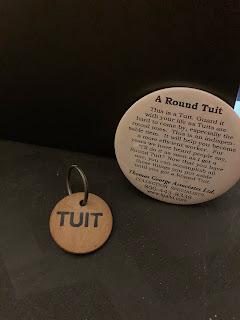The prompt for Week 12 of Amy Johnson Crow's "52 Ancestors in 52 Weeks" is Membership. Since I should have written this during Women's History Month in March, let me mention three maternal ancestors and the organizations to which they belonged.
My maternal grandmother, Eugenia Marolewski, was a member of Mothers of World War II, Unit 125 from Immaculate Conception Church in South Chicago. For a few years she served as president of the group, as well as financial secretary of District 1. From newspaper items, it appesrs that this group was dedicated to supporting veterans. They visited local VA hospitals and provided cookies and gifts at Christmastime. The group welcomed mothers of those who served in World War II or Korea, as well as those who currently had children in the armed services.
Grandma's sister-in-law, my grandpa Steve's sister Constance Norwich, once served as president of the American Legion Auxiliary South Chicago Unit 493. She was at one time national president of the Polish Legion of American Veterans, Ladies Auxiliary.
Grandpa and Grandma's daughter Henrietta (my aunt Hank) was a member of the Cadet Nurse Corps. A student at the Jackson Park Hospital School of Nursing, she joined the Corps in October 1944, and her service ended when she graduated in October 1947.
